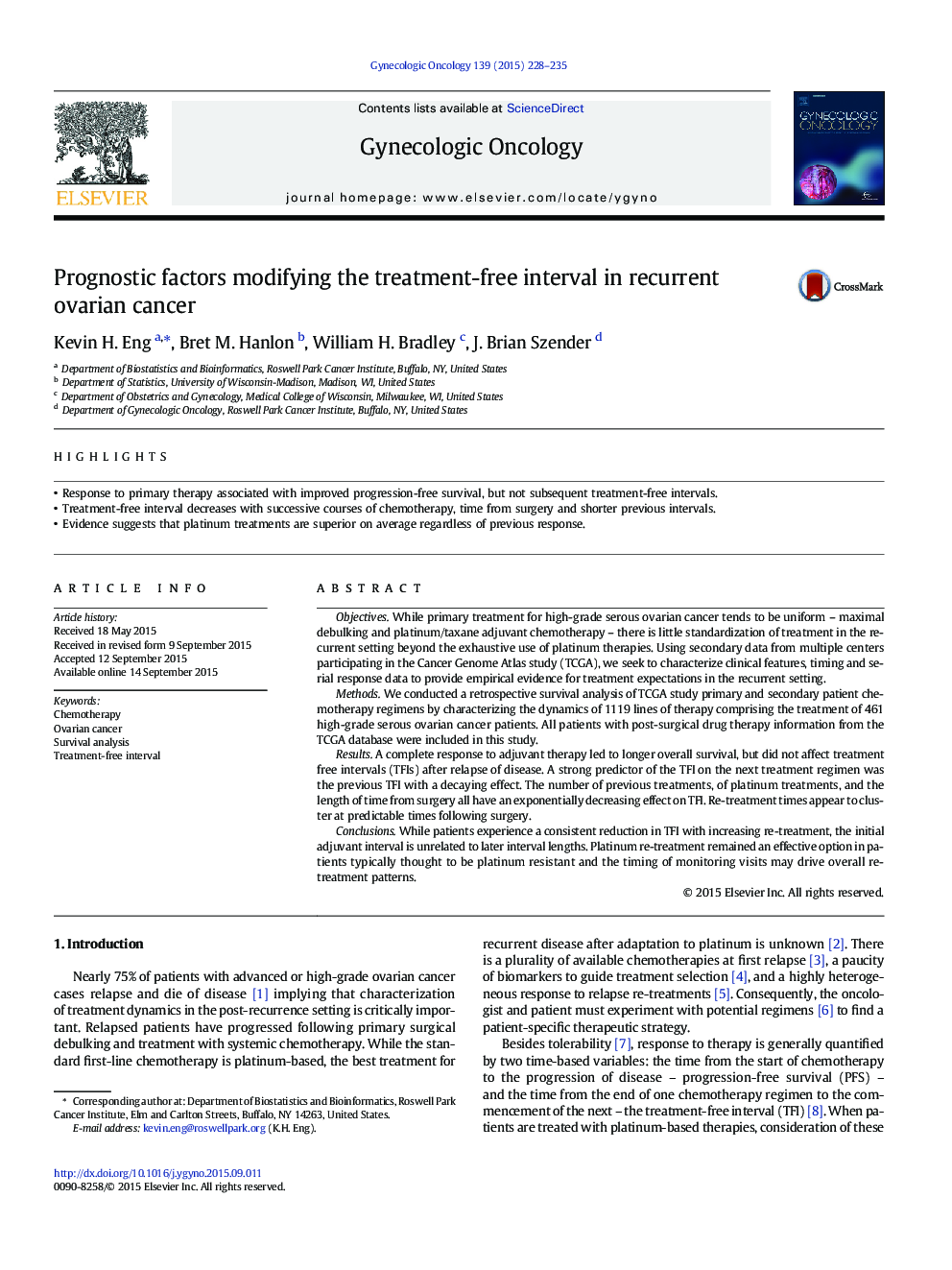| کد مقاله | کد نشریه | سال انتشار | مقاله انگلیسی | نسخه تمام متن |
|---|---|---|---|---|
| 3943050 | 1254070 | 2015 | 8 صفحه PDF | دانلود رایگان |
• Response to primary therapy associated with improved progression-free survival, but not subsequent treatment-free intervals.
• Treatment-free interval decreases with successive courses of chemotherapy, time from surgery and shorter previous intervals.
• Evidence suggests that platinum treatments are superior on average regardless of previous response.
ObjectivesWhile primary treatment for high-grade serous ovarian cancer tends to be uniform – maximal debulking and platinum/taxane adjuvant chemotherapy – there is little standardization of treatment in the recurrent setting beyond the exhaustive use of platinum therapies. Using secondary data from multiple centers participating in the Cancer Genome Atlas study (TCGA), we seek to characterize clinical features, timing and serial response data to provide empirical evidence for treatment expectations in the recurrent setting.MethodsWe conducted a retrospective survival analysis of TCGA study primary and secondary patient chemotherapy regimens by characterizing the dynamics of 1119 lines of therapy comprising the treatment of 461 high-grade serous ovarian cancer patients. All patients with post-surgical drug therapy information from the TCGA database were included in this study.ResultsA complete response to adjuvant therapy led to longer overall survival, but did not affect treatment free intervals (TFIs) after relapse of disease. A strong predictor of the TFI on the next treatment regimen was the previous TFI with a decaying effect. The number of previous treatments, of platinum treatments, and the length of time from surgery all have an exponentially decreasing effect on TFI. Re-treatment times appear to cluster at predictable times following surgery.ConclusionsWhile patients experience a consistent reduction in TFI with increasing re-treatment, the initial adjuvant interval is unrelated to later interval lengths. Platinum re-treatment remained an effective option in patients typically thought to be platinum resistant and the timing of monitoring visits may drive overall re-treatment patterns.
Journal: Gynecologic Oncology - Volume 139, Issue 2, November 2015, Pages 228–235
